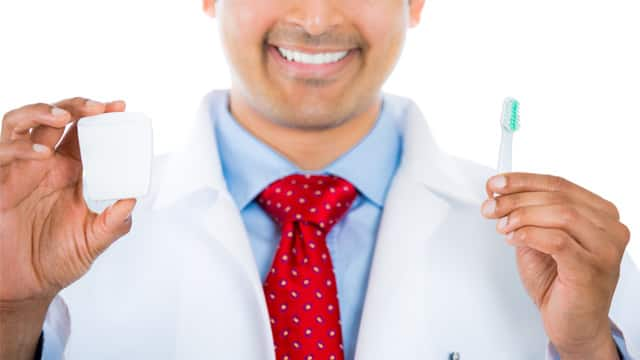What is a Cavity?
A tooth cavity is a small hole or opening that forms on the teeth due to tooth decay. Tooth decay involves continuous wear down of the enamel by acids of bacterial (dental plaque) or non-bacterial (acidic foods and drinks) origin. Cavities tend to form in the pits on the back teeth’s chewing surfaces, near the gumline, and between the teeth.
Cavities, also known as dental caries, in the initial stages may appear as small white spots on the surface of your tooth enamel. If left untreated, they can further progress to deeper areas of the tooth, leading to tooth sensitivity and pain. Regular dental check-ups for early detection and timely tooth cavity treatment can prevent toothaches and more serious implications such as tooth abscesses and tooth loss.
Getting Help For Your Cavity
Once a cavity has formed, the most effective cavity pain remedy is having a dentist treat it. Your dentist may use the latest technology tools and techniques to evaluate your tooth and determine the treatment for effective cavity pain relief. Cavity treatment can vary depending on the severity or various stages of cavity progression, which include:
Enamel decay: In the early stages of tooth decay, it affects only the tooth enamel and may not have spread to the tooth nerves, so this stage is usually not painful. To prevent further decay, your dentist will clean the decayed part and seal the cavity with material such as silver amalgam or tooth-coloured composite material.
Dentin decay: As the untreated decay progresses from the enamel to the dentin, you may experience pain upon drinking cold water or eating. At this stage, the food particles may get stuck in the cavity. Your dentist may perform more extensive filling as part of the cavity treatment.
Pulp damage: If the decay advances beyond the dentin to the tooth pulp, it can cause more intense toothaches. The tooth nerve tends to get inflamed at this stage due to bacterial action. The dentist may recommend root canal treatment to relieve you of the pain and further damage.
Tooth Abscess: Early tooth decay treatment helps prevent bacterial infections from advancing to the jaw bone, causing swelling and pain that radiates to your mouth, neck, or face. Untreated infections may spread to the tooth root, causing tooth abscess, and may spread to the surrounding tissues, inviting other serious implications.
If the tooth is badly decayed, your dentist may suggest having the entire tooth removed and replaced with a bridge or an implant. While these options may sound extreme, they are safe, will protect you from other potential risk factors and improve your dental health in the long run.
Tooth Decay Treatment At Home
Professional dental treatment should be your priority if you are looking for an effective cavity pain remedy. However, there are measures you can take at home for temporary pain relief and to slow down the cavity progression until you see a dentist. Some of the home remedies for cavity pain relief include:
Saltwater Rinse: Some people have experienced temporary cavity pain relief with a warm saline rinse. This mouthwash is made by mixing a teaspoon of salt in a glass of warm water and swished in the mouth before spitting it out. Salt, a natural disinfectant, helps loosen the debris and food particles trapped in the teeth. The warmth of the rinse soothes the pain by helping reduce swelling in the gums.
Cold Compress: Some people find temporary pain relief by applying a cold compress or ice pack to the outside of their cheek near the toothache. The cold helps temporarily numb the pain and reduce inflammation. However, it does not cure the underlying cause of the tooth pain. Hence, seeking professional tooth cavity treatment for a long-term solution is ideal.
Clove Oil: Clove oil has antibacterial and natural numbing properties. Applying a few drops to a cotton swab and dabbing it gently on the affected tooth is known to offer temporary tooth cavity pain relief for some people. However, it does not cure the underlying cause of the problem, and its taste may not be equally appealing to everyone.
Quick Relief for Toothache Caused by Cavities
Cavity pain is sharp, throbbing, and constant. It occurs when the tooth cavity destroys the enamel and progresses through the dentin layer, sending pain signals to the brain. Applying home remedies like cloves to the affected area or taking painkillers may have side effects like chemical burns.
Colgate PainOut Dental Gel is an ayurvedic gel that provides express relief from dental cavity pain. PainOut has Eugenol, Camphor, and Menthol in a unique Anti-Eugenia formulation which provides symptomatic relief from Toothpain. The active ingredient in PainOut plugs transmission of pain to the brain, thus providing express relief. Camphor provides relief from swelling and menthol provides a cooling and soothing effect. These are natural ingredients, and PainOut is an easy, one-finger application. Thus Colgate PainOut provides relief from cavity pain within 2 minutes.
Preventing Future Cavities
Adopting preventive measures is better than searching for cavity pain relief later on. Here are some easy and effective steps you can consider as part of your oral care regime to keep tooth cavities at bay and enhance your dental health:
Watch your diet: Ideally, avoid acidic and sugary foods and drinks, and choose a healthy diet.
Maintain a good oral care routine: Brush twice a day for two minutes each time. Floss between the teeth every day to remove food debris and plaque.
Regular dental check-ups: It is best to opt for regular dental check-ups with a dentist to clean plaque and tartar build-up and seek early diagnosis and cavity pain treatment options as needed.
Using fluoride toothpaste: Fluoride toothpaste helps strengthen the tooth enamel, protecting it against acid attacks that may lead to tooth decay and dental cavities.
For example, Colgate Total Advanced Health is a good pick that offers multiple oral benefits. Formulated with Dual Zinc and Arginine, it fights germs on teeth, gums, cheeks, and tongue, protecting your mouth for 12 hours. It protects the enamel from erosive damage and prevents plaque and tartar build-up, bad breath, and cavities.
If you are wondering how to cure cavities effectively and how to get rid of cavity pain, consulting a dentist is ideal. Tooth cavities and resultant tooth pain are oral health problems that good oral hygiene can easily keep at bay. Early detection of cavities and timely tooth cavity treatment can save your teeth from further damage and provide you with a healthy smile.
Frequently Asked Questions
Can tooth cavity be cured?
Curing tooth cavities requires addressing the underlying causes. A dentist can provide the most appropriate tooth decay treatment based on the severity of the cavity progression. Timely treatment will prevent the cavity from progressing and causing further damage to the teeth.
How do you relieve cavity pain?
Cavity pain relief typically involves addressing the underlying cause and managing discomfort. Your dentist can diagnose the cause of the pain and determine the cavity's severity to recommend a suitable treatment involving a dental filling, root canal, or tooth extraction. This helps prevent further damage and relieves the pain.
How can I treat decayed teeth at home?
Tooth decay treatment at home includes home remedies such as warm salt water rinse, cold compress, or clove oil for temporary pain relief. However, these remedies do not cure the underlying cause, so it is ideal to consult a dentist.
How do you remove decay from teeth?
Tooth cavity and tooth decay treatment requires you to consult a dentist. The dentist will determine the severity of the cavity and recommend a suitable treatment involving a filling, root canal, or tooth extraction.
This article is intended to promote understanding of and knowledge about general oral health topics. It is not intended to be a substitute for professional advice, diagnosis or treatment. Always seek the advice of your dentist or other qualified healthcare provider with any questions you may have regarding a medical condition or treatment.
ORAL HEALTH QUIZ
What's behind your smile?
Take our Oral Health assessment to get the most from your oral care routine
ORAL HEALTH QUIZ
What's behind your smile?
Take our Oral Health assessment to get the most from your oral care routine













